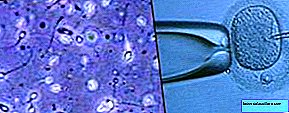
The EAACI / GA2LEN working group prepared three years ago a positioning document on the care of allergic children in school that establishes as a main conclusion the fact that the recognition of this condition in children is the first step to its correct attention .
All children with allergic diseases may experience exacerbations in school. The reference document offers recommendations, and also establishes guidelines for action, so it is very important that all parties involved have access to it. It is published in the Spanish Society of Pediatric Immunology and Allergy (SEICAP) and has been prepared by a group of experts coordinated by Dr. Antonella Muraro. We wanted to be brief, extracting only the rights of allergic children in school. Among these rights is receive education in a safe and healthy environment, with the least possible number of triggering allergens and irritants, and breathing clean air at school. Nor should they be stigmatized due to their status.
Students with allergies can participate in all educational and recreational school activities at the same level as their classmates. They also need to have access to medication and other measures to relieve your symptomss.
Another right of allergic children is to access trained personnel who can treat acute reactions, and receive an education adapted to their condition if necessary (eg physical education).

Performance in schools before allergies
In order not to fall short, we offer you this Decalogue prepared by SEICAP
1.- Designate a person in charge of the general organization of child care with severe allergic or asthmatic reactions. This person should ensure that the child at risk is well identified by all school staff.
2.- Be in possession of the diagnosis and treatment report prepared by the pediatric specialist. Parents should provide a copy of it to school staff.
3.- The person in charge will designate several people who know how to act in response to a specific child's reaction.
4.- School personnel must receive training by a healthcare professional on the avoidance of allergens and the recognition and emergency treatment of an allergic reaction.
5.- The person in charge must keep the emergency medication in a safe but accessible place in case of emergency.
6.- The person responsible must know how to administer emergency medication in case there can be no delays.
7.- Those responsible should know the circuits of urgent medical attention and notice to parents or guardians.
8.- The kitchen staff and the dining room monitors must be well informed about food allergies that students may have.
9.- School staff must take precautions in all areas of the school: classrooms, playgrounds, gyms, sports fields, laboratories, workshops, buses, etc; but also in all those activities carried out outside the school such as excursions or trips.
10.- School staff You must have immunity from prosecution for the consequences of administering emergency or rescue medication.
The authors of the aforementioned report say that adequate legislation must be enacted to create a safe school environment for the allergic child and at the same time protect education workers. The implementation of these recommendations in the various healthcare models in Europe would ultimately protect and protect all children with allergies while they are in school.
Images | USDAgov, National Assembly For Wales / Cynulliad Cymru Via | My Menu without Milk More information | Positioning Document (in SEICAP) In Peques and More | Pilar Cots, allergist, "allergy in children can not and should not be a limitation in their personal and social development," Do we know how children feel allergic to food ?, Celiac children also go to school: practical guide Child Advocate of the Community of Madrid












